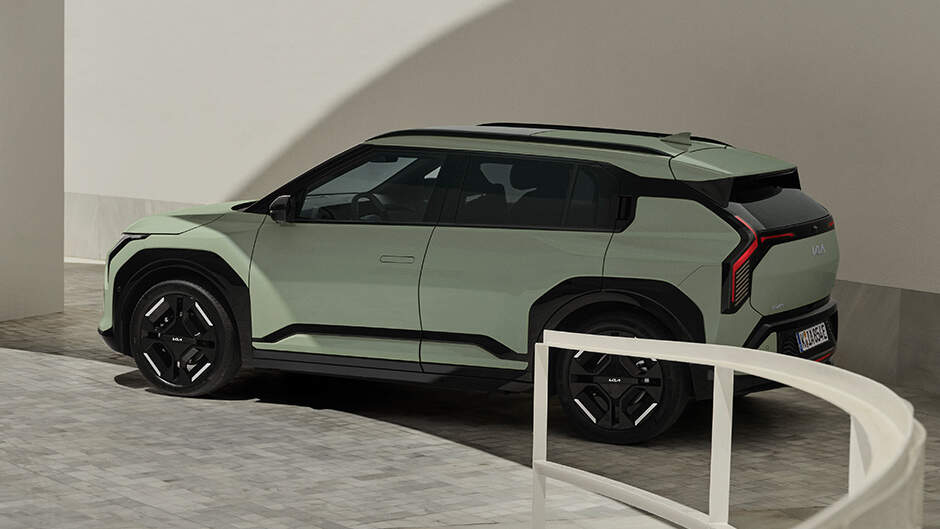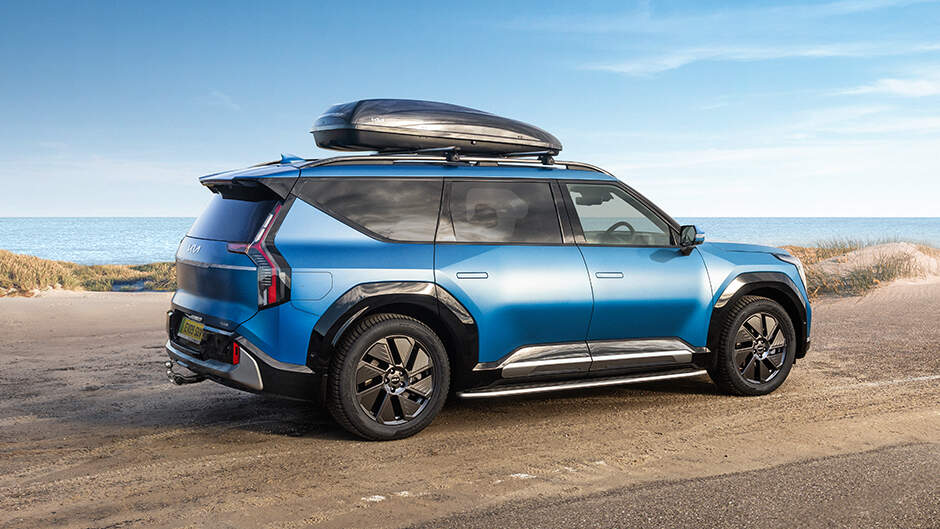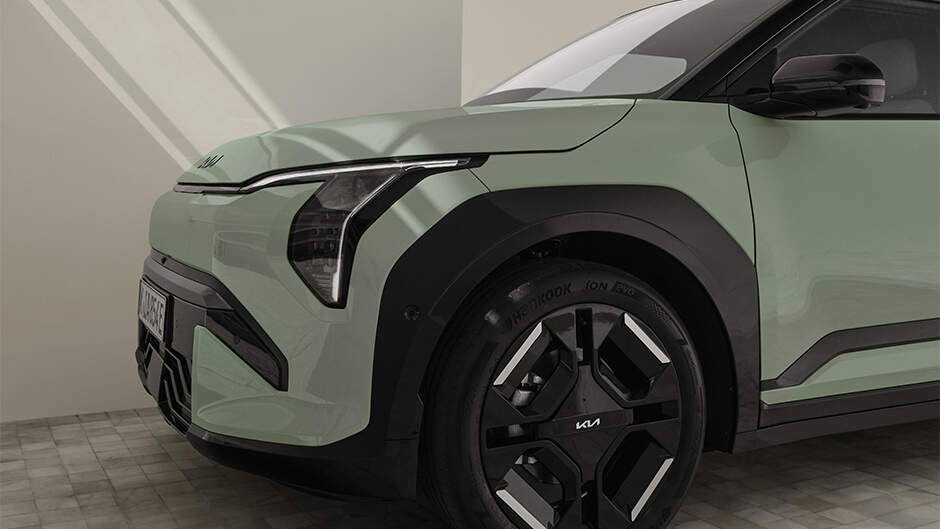What Is a Heat Pump & How Do They Work?

What is a Heat Pump and How do They Work?
It’s no secret that temperature control is important in any vehicle. However, keeping your electric car
warm in winter and cool in summer can have an impact on your vehicle's range. This is where your heat pump comes in - a device that plays a crucial role in helping you manage your car’s temperature efficiently without draining the battery.
Kia models like the EV3
, EV6
and EV9
1
are fitted with advanced heat pump systems to ensure you can enjoy an optimised driving range, even in challenging weather. Let’s explore heat pumps work and why they are such a beneficial feature in electric vehicles (EVs).

How Does a Heat Pump Work?
An electric vehicle can operate in both heating and cooling modes, using a refrigerant system to transfer heat rather than generating it from electricity directly. In colder weather, the heat pump extracts heat from the outside air, even when temperatures are low, and transfers it into the car’s cabin. This process is highly efficient and consumes significantly less power than traditional electric heaters in a car. It also leaves more energy available for driving, thus extending the vehicle's range.
When the temperature rises, the same heat pump works in reverse by removing warm air from the cabin to improve comfort. This two-way functionality is what makes heat pumps so valuable in electric vehicles.

What Does a Heat Pump Do in an Electric Car?
In short, a heat pump ensures that the cabin temperature remains comfortable without draining the battery. It helps to regulate the temperature through the electric car pump, drawing heat from outside air in winter and expelling it in summer.
The heat pump in an electric vehicle is far more energy-efficient than traditional heating methods. This makes it essential to maximise driving range and maintain comfort for everyone onboard.

Why Are Heat Pumps Important in Electric Cars?
One of the main challenges for electric cars is managing energy usage. Traditional automotive interior heaters rely on high-energy electric resistors, which significantly reduce the range of the car by diverting battery power away from the motor.
A heat pump on an electric car, on the other hand, offers a much more efficient solution by minimising the amount of power needed to heat or cool the cabin

How Does the Heating Work in an Electric Car?
In electric vehicles, the heating system draws energy from the same EV9
that powers the car. Without a combustion engine to provide excess heat, electric vehicles must rely on electric pumps and resistive heating to warm the interior. This can put a strain on the battery, reducing the overall driving range - unless a heat pump is involved.
The inclusion of a heat pump in an electric vehicle transforms how the heating works. Instead of relying on high-energy heaters, the EV heat pump provides a more sustainable and energy-efficient way to heat the cabin. The Kia EV9, for example, uses air from outside and collects waste heat from both the e-motors and the Power Electronics (PE) system to heat the cabin. This allows drivers to enjoy warmth and comfort without a significant reduction in driving range, making heat pumps an essential feature in colder climates.

Why a Heat Pump Is Worth It in an Electric Car
When considering whether a heat pump is worth it in an electric car, it's important to weigh the energy savings and range benefits. For instance, in a Kia electric car equipped with a heat pump, the reduction in energy consumption can translate into additional miles of driving range, especially in cold weather. This is because the heat pump is designed to be highly efficient across various temperatures, helping electric vehicle owners to get the best out of their battery life.
Indeed, electric cars feature a variety of energy-saving temperature control measures. All Kia EVs are also fitted with a cabin cabin pre-conditioning that allows you to pre-heat your vehicle to the temperature you desire whilst the vehicle is on charge, using less energy to do so than a car already on the move. This is perfect if you live in a colder climate or are driving in winter
when the temperature is lower.

The Impact of Heat Pumps on Energy Usage and Range
Electric vehicles are at the forefront of sustainability, and heat pumps offer an exciting way to boost their efficiency. As electric car heaters are responsible for significant energy consumption, reducing this load with an energy-efficient heat pump directly impacts the car's overall performance.
In the Kia EV3
,EV6
and EV9
, the electric heat pump optimises energy usage, allowing the vehicle to go farther on a single charge. In colder climates or during winter, where heat management is more critical, the heat pump reduces the impact on the driving range while keeping passengers warm.
With heat pumps continuing to play an essential role in automotive climate control systems, they are undoubtedly a valuable feature for electric vehicle owners. Kia’s commitment to integrating this technology ensures that their models, from the EV3
, to the EV9, offer improved efficiency, making every journey as energy-conscious as it is comfortable.

(1) Heat pumps are available on selected derivatives on the Kia electric model range.
Images shown are for illustration purposes only and may not be to full UK specification. Features shown are not standard across the Kia model range and availability will vary dependant on model. For further details please refer to the individual model specification sheets.
Product availability varies by models. To find out which products are available for your vehicle, please contact your Kia dealer.

